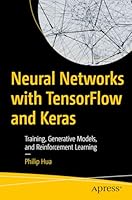
Effective Java, 3rd Edition
- Length: 416 pages
- Edition: 3
- Language: English
- Publisher: Addison-Wesley Professional
- Publication Date: 2018-01-07
- ISBN-10: 0134685997
- ISBN-13: 9780134685991
- Sales Rank: #6674 (See Top 100 Books)
The Definitive Guide to Java Platform Best Practices—Updated for Java 7, 8, and 9
Java has changed dramatically since the previous edition of Effective Java was published shortly after the release of Java 6. This Jolt award-winning classic has now been thoroughly updated to take full advantage of the latest language and library features. The support in modern Java for multiple paradigms increases the need for specific best-practices advice, and this book delivers.
As in previous editions, each chapter of Effective Java, Third Edition, consists of several “items,” each presented in the form of a short, stand-alone essay that provides specific advice, insight into Java platform subtleties, and updated code examples. The comprehensive descriptions and explanations for each item illuminate what to do, what not to do, and why.
The third edition covers language and library features added in Java 7, 8, and 9, including the functional programming constructs that were added to its object-oriented roots. Many new items have been added, including a chapter devoted to lambdas and streams.
New coverage includes
- Functional interfaces, lambda expressions, method references, and streams
- Default and static methods in interfaces
- Type inference, including the diamond operator for generic types
- The @SafeVarargs annotation
- The try-with-resources statement
- New library features such as the Optional interface, java.time, and the convenience factory methods for collections
Register your product at informit.com/register for convenient access to the web edition eBook, updates, and/or corrections as they become available.
Table of Contents
1 Introduction
2 Creating and Destroying Objects
Item 1: Consider static factory methods instead of constructors
Item 2: Consider a builder when faced with many constructor parameters
Item 3: Enforce the singleton property with a private constructor or an enum type
Item 4: Enforce noninstantiability with a private constructor
Item 5: Prefer dependency injection to hardwiring resources
Item 6: Avoid creating unnecessary objects
Item 7: Eliminate obsolete object references
Item 8: Avoid finalizers and cleaners
Item 9: Prefer try-with-resources to try-finally
3 Methods Common to All Objects
Item 10: Obey the general contract when overriding equals
Item 11: Always override hashCode when you override equals
Item 12: Always override toString
Item 13: Override clone judiciously
Item 14: Consider implementing Comparable
4 Classes and Interfaces
Item 15: Minimize the accessibility of classes and members
Item 16: In public classes, use accessor methods, not public fields
Item 17: Minimize mutability
Item 18: Favor composition over inheritance
Item 19: Design and document for inheritance or else prohibit it
Item 20: Prefer interfaces to abstract classes
Item 21: Design interfaces for posterity
Item 22: Use interfaces only to define types
Item 23: Prefer class hierarchies to tagged classes
Item 24: Favor static member classes over nonstatic
Item 25: Limit source files to a single top-level class
5 Generics
Item 26: Don’t use raw types
Item 27: Eliminate unchecked warnings
Item 28: Prefer lists to arrays
Item 29: Favor generic types
Item 30: Favor generic methods
Item 31: Use bounded wildcards to increase API flexibility
Item 32: Combine generics and varargs judiciously
Item 33: Consider typesafe heterogeneous containers
6 Enums and Annotations
Item 34: Use enums instead of int constants
Item 35: Use instance fields instead of ordinals
Item 36: Use EnumSet instead of bit fields
Item 37: Use EnumMap instead of ordinal indexing
Item 38: Emulate extensible enums with interfaces
Item 39: Prefer annotations to naming patterns
Item 40: Consistently use the Override annotation
Item 41: Use marker interfaces to define types
7 Lambdas and Streams
Item 42: Prefer lambdas to anonymous classes
Item 43: Prefer method references to lambdas
Item 44: Favor the use of standard functional interfaces
Item 45: Use streams judiciously
Item 46: Prefer side-effect-free functions in streams
Item 47: Prefer Collection to Stream as a return type
Item 48: Use caution when making streams parallel
8 Methods
Item 49: Check parameters for validity
Item 50: Make defensive copies when needed
Item 51: Design method signatures carefully
Item 52: Use overloading judiciously
Item 53: Use varargs judiciously
Item 54: Return empty collections or arrays, not nulls
Item 55: Return optionals judiciously
Item 56: Write doc comments for all exposed API elements
9 General Programming
Item 57: Minimize the scope of local variables
Item 58: Prefer for-each loops to traditional for loops
Item 59: Know and use the libraries
Item 60: Avoid float and double if exact answers are required
Item 61: Prefer primitive types to boxed primitives
Item 62: Avoid strings where other types are more appropriate
Item 63: Beware the performance of string concatenation
Item 64: Refer to objects by their interfaces
Item 65: Prefer interfaces to reflection
Item 66: Use native methods judiciously
Item 67: Optimize judiciously
Item 68: Adhere to generally accepted naming conventions
10 Exceptions
Item 69: Use exceptions only for exceptional conditions
Item 70: Use checked exceptions for recoverable conditions and runtime exceptions for programming errors
Item 71: Avoid unnecessary use of checked exceptions
Item 72: Favor the use of standard exceptions
Item 73: Throw exceptions appropriate to the abstraction
Item 74: Document all exceptions thrown by each method
Item 75: Include failure-capture information in detail messages
Item 76: Strive for failure atomicity
Item 77: Don’t ignore exceptions
11 Concurrency
Item 78: Synchronize access to shared mutable data
Item 79: Avoid excessive synchronization
Item 80: Prefer executors, tasks, and streams to threads
Item 81: Prefer concurrency utilities to wait and notify
Item 82: Document thread safety
Item 83: Use lazy initialization judiciously
Item 84: Don’t depend on the thread scheduler
12 Serialization
Item 85: Prefer alternatives to Java serialization
Item 86: Implement Serializable with great caution
Item 87: Consider using a custom serialized form
Item 88: Write readObject methods defensively
Item 89: For instance control, prefer enum types to readResolve
Item 90: Consider serialization proxies instead of serialized instances







